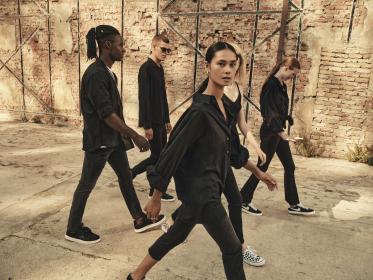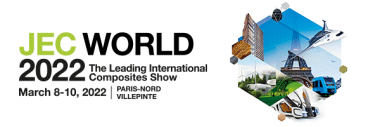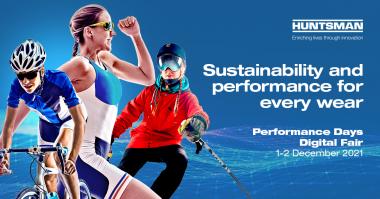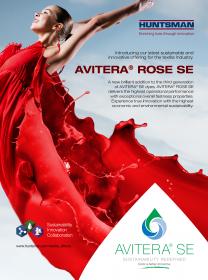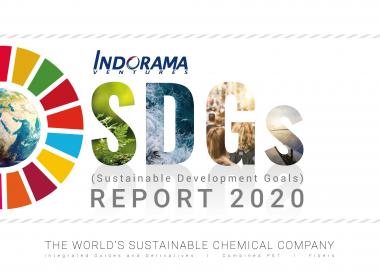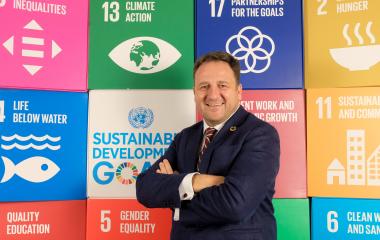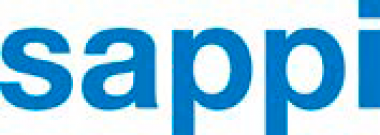Fashionsustain veröffentlicht Programm für Januar 2022
- Mindset Revolution, der Wandel in der Textil- und Modebranche:
Das eigene Mindset revolutionieren, dabei technisch up-to-date bleiben und Umsatz als eigentlichen Fokus nicht aus den Augen verlieren – um all diesen Anforderungen gerecht zu werden, benötigt die Textil- und Modeindustrie ein neues Set-up. Dem nimmt sich die Fashionsustain, das internationale und multidisziplinäre Konferenzformat der Neonyt, unter dem Motto Change the set-up vom 18. bis 20. Januar 2022 an. Unter anderem mit dabei sind Ecoalf, German Design Council, Sympatex, Tchibo, UN Global Compact Network Germany und Vinokilo.
Für die Ausgabe Januar 2022 bringt die Konferenz Fashionsustain Vertreter*innen nachhaltiger Modemarken, Technologieunternehmen der textilen Vorstufe, Handelsexpert*innen, Verhaltensökonom*innen und Siegelprofis zusammen, um das Spannungsfeld zwischen gewünschtem und tatsächlichem Wandel zu ergründen. Neben technologischen Innovationen, neuen Geschäftsmodellen und Ansätzen für den Modehandel werden Schlagworte wie Konsumverhalten, Nudging for Good und die Gaming-Branche eine Rolle spielen.
Denn „outside the box“ zu denken und Veränderungen zuzulassen, ist wichtig. Besonders in der Modebranche, die sich unter anderem zum Ziel gesetzt hat, ihre CO2-Emissionen bis 2030 zu halbieren. Dafür braucht es einen Mentalitätswandel. Auf dem Weg dorthin definiert Fashionsustain für ihre Agenda im Januar 2022 folgende Meilensteine:
Dienstag, 18. Januar 2022:
Veränderung des Mindset als wichtigste Basis
Den Rahmen für einen Wandel setzt Prof. Dr. Maren Urner, Neurowissenschaftlerin und Professorin für Medienpsychologie mit ihrem Impulsvortrag zum Thema Change the Mindset. Im Zentrum steht dabei die sogenannte Attitude-Behaviour-Gap: Ein wissenschaftliches Phänomen, nach dem Verbraucher*innen in Studien zunehmend angeben, Wert auf Nachhaltigkeit zu legen und für ein nachhaltig produziertes Produkt mehr Geld ausgeben zu wollen, während weitere Studien bestätigen, dass der Preis nach wie vor eines der entscheidendsten Kaufkriterien ist und damit das tatsächliche Konsumverhalten hinter den guten Absichten zurückbleibt. Im Anschluss reflektiert sie in einer Runde mit Lutz Dietzold vom German Design Council und weiteren Branchen- und NGO-Vertreter*innen, warum Menschen anders handeln als sie beabsichtigen und wie sich unsere eigene Haltung in Zukunft noch stärker in unserem Verhalten widerspiegeln kann.
Wie diese Haltung in Form von international übergreifenden Standards und Gesetzen verankert werden kann, diskutiert das Umweltbundesamt gemeinsam mit der Lenzing AG und den beiden NPOs Fairwear Foundation und The Sustainable Angle zum Thema Sourcing – How to tackle disruptions and become more sustainable. Hierbei stehen die transparente Gestaltung von Lieferketten sowie die Haftung von Unternehmen für Menschen- oder Umweltrechtsverletzungen ihrer Lieferant*innen im Fokus.
Ein Wertewandel, der sich – auch getrieben von der Pandemie – bereits vollzogen hat, ist die stärkere Wertschätzung von Natur und deren Integration in die Großstadt. Vor diesem Hintergrund reflektiert der Nachhaltigkeitsstandard Bluesign zum Thema Outdoor Fashion. Nature lovers in the city. gemeinsam mit Outdoor-Expert*innen von Deuter, Pinqponq und Sympatex wie sie ihre Produkte und Arbeitspraktiken an die sich wandelnde Zielgruppe angepasst haben. Dass auch Brands nicht von der Attitude-Behaviour-Gap gefeit sind, beweist Christian Salewski vom Research-Start-up Flip: In seinem Insight-Talk Sneaker Hunt – What happens to our old shoes? gibt er Einblicke hinter die Kulissen eines der in der Branche meistdiskutierten Videos des Jahres: Gemeinsam mit prominenten Persönlichkeiten hat Flip aufgedeckt, dass Sneaker nicht immer so recycelt werden wie von den dahinter stehenden Brands angegeben.
In Kontrast dazu illustriert der Streetwear-Talk Sneakers. How sustainable can they be? wie es anders geht: Carolina Alvarez-Ossorio Speith, Chief Communication Officer von Ecoalf stellt die Kooperation mit Bcome, einer Nachhaltigkeitsplattform für transparente Lieferketten, vor und diskutiert mit Sebastian Thies von Nat-2 und Hagen Matuszak von Sneaker Rescue, wo die Sneaker-Branche in Sachen Nachhaltigkeit steht und welche Veränderungen es braucht, um auch in Sneakers neue Wege hin zum positiven Wandel zu gehen.
Als wichtiger Leitfaden aller Akteur*innen dienen die von den Vereinten Nationen verabschiedeten Sustainable Development Goals (SDGs). Silke Düwel-Rieth, Director Business and SDGs des UN Global Compact Network Germany gibt daher zum Tagesabschluss mit der UN Global Compact Academy Einblick, wie die SDGs in der Geschäftspraxis Anwendung finden.
Mittwoch, 19. Januar 2022:
Wandel technischer Rahmenbedingungen
Neben Nachhaltigkeit ist Digitalisierung der große Treiber aller Märkte unserer Zeit. Deshalb steht der zweite Tag der Fashionsustain ganz im Zeichen von technologischem Fortschritt.
Den Auftakt macht Marte Hentschel von Sqetch, einer digitalen Sourcing-Plattform, mit einem Impulsvortrag zum Thema. Anschließend referiert Majken Kalhave, Executive Director von Creative Denmark, einer gemeinnützigen, öffentlich-privaten Organisation zur Förderung der Zusammenarbeit internationaler Akteur*innen mit der dänischen Kreativwirtschaft, zu Sustainability by Design bevor sie mit Livia Lee, CEO Lala Berlin, Jess Fleischer, CEO Son of a Tailor und Niels Mikkelsen, Co-Founder Create2Stay diskutiert, wie man Digitalisierung nutzen kann, um nachhaltige Mode zu kreieren.
Dies wird von Designerin und Burda New Faces Award Gewinnerin Helene Galwas und Alice Beyer Schuch von Detto Fatto unter dem Motto Fashion Design – The Role of Design for Sustainability in Fashion aufgegriffen und vertieft.
Perre de Chanville setzt mit seinem Start-Up Tekyn an anderer Stelle an: Mit Ito Ito spricht er zum Thema Customer-centric fashion production – Key for sustainability? wie sich On-Demand-Textilproduktion am Kunden orientiert, um Überproduktion und Retouren zu vermeiden und Lieferketten insgesamt nachhaltiger zu gestalten.
Ein wichtiger Faktor ist dabei die Rückverfolgbarkeit innerhalb der Lieferketten. Welche Technologielösungen hierbei den entscheidenden Unterschied hinsichtlich Transparenz und Effizienz liefern können, diskutieren Roman Houlbreque, Chief Customer Officer der Retraced GmbH, Marion Röttges, Co-CEO der Remei AG und Sasha Adam, Sustainability Manager von Greenbomb im Panel Traceability. A question of technology?
Abgerundet wird der zweite Tag durch das Thema Textilsiegel als wichtige Schnittstelle zwischen der physischen Welt des Produktes und der digitalen Rückverfolgung seiner Lieferkette. Unter dem Titel Certification Jungle erörtern Sebastian Herold, Stellvertretender Referatsleiter des Bundesministeriums für wirtschaftliche Zusammenarbeit und Entwicklung, Axel Schröder, Sustainability Manager Human Rights bei Tchibo sowie eine nachhaltige Modemarke mit einem Augenzwinkern, wie man sich im Zertifikatsdschungel zurechtfindet.
Donnerstag, 20. Januar 2022:
Konsumveränderungen als Chance
Nicht nur pandemiebedingt, auch durch einen fortschreitenden Wertewandel verändern Konsument*innen stetig ihr Verhalten. Wie der Handel hierbei Schritt halten kann, steht im Fokus des dritten Tages.
Nudging for Good – E-commerce and Climate Action ist das Thema des ersten Panels. Unter Nudging for Good versteht man Aktionen von Unternehmen, die Verbraucher*innen proaktiv zu einer gesünderen und nachhaltigeren Lebensweise bewegen sollen. Impulse geben Varena Junge von Yook, Eik Lämmerhirt von Keepoala und Frederik Dürr von My Shoefitter, indem sie ihre Lösungen vorstellen: Yook bewegt E-Commerce-Händler zu nachhaltigem Handeln, die App Keepoala hilft spielerisch, Retouren zu reduzieren und die Fußvermessungs-App My Shoefitter ermöglicht es, Schuhe möglichst passgenau zu bestellen.
Wie Nachhaltigkeit dazu beitragen kann, Innenstädte wiederzubeleben und der Handel sich als Wissensvermittler für Konsument*innen platzieren kann, besprechen Tanja Kliewe-Meyer von Like a Bird, Marco Schütte der EK Service Group und Ricarda Mohr der Stadt Herford im Panel Sustainability at the Point of Sale – How do I explain it to my Customers?
Anschließend diskutieren Mimi Sewalski von Avocadostore und Maike Gossen der TU Berlin das Spannungsfeld zwischen Umsatzwachstum und Konsumreduktion im Sinne der Nachhaltigkeit unter dem Motto Don´t buy these Trousers – Fashion Brands between Sufficiency Communications and the need to sell.
Ob Re-Commerce hierzu eine Lösung sein könnte? Die Wachstumszahlen sprechen jedenfalls seit Jahren für sich. Robin Balser, CEO und Gründer des erfolgreichen Vintage Pop-Up Formats Vinokilo spricht mit Anna Bronowski von Jan’n‘June und Doris Schoger von Rebound Stuff über Re-Commerce – An uprising Business Model in Fashion Retail? und wie Brands und Händler*innen entsprechende Konzepte in ihre bestehenden Business-Modelle integrieren können.
Begleitet wird die Fashionsustain auch in dieser Saison wieder von einem Showcase, einer Ausstellung, die sich auf Fashion Start-Ups, Technologie-Anbieter und Produkte zur Vermarktung von Mode fokussiert. Neben Bcome und My Shoefitter, die auch auf der Fashionsustain Bühne zu sehen sind, launcht der Verpackungsspezialist EnvoPap seine neuesten zirkulären Verpackungen für die Mode-, Einzelhandels- und E-Commerce-Branche aus Abfallprodukten landwirtschaftlicher Fasern, die recycle- und kompostierbar und damit vollständig biologisch abbaubar sind. Mit dabei sind außerdem die redaktionell gestaltete Einzelhandelsplattform Staiy sowie WeDress Collective, ein Kleider-Rental-Service mit lokalem Ansatz.
Das vollständige Programm ist online einsehbar unter: www.fashionsustain.com
FASHIONSUSTAIN
KERN










